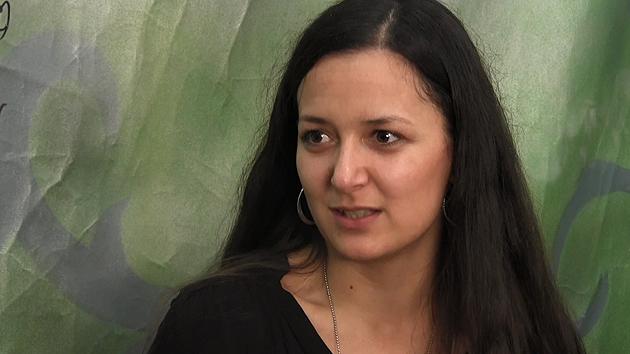Alica Heráková lives in the neighborhood of the Czech city of Brno around Bratislavská and Cejl Streets that is nicknamed the "Bronx". She has decided to convince the residents of Brno that the quarter is not actually a dangerous place that should be avoided.
How? Today – Friday, 6 June – the third annual Ghettofest street festival opens there.
For the first time, the festival will last until Sunday. The streets will be filled "with a mix of dance, film
screenings, music and theater, as well as outdoor street bazaars and
cafés….. Local residents are producing the events. We want people who might not otherwise meet one another to do so during Ghettofest," Heráková says.
News server Romea.cz presents this excerpt of an interview with Heráková conducted by iDNES.cz in translation:
Q: You come from Bratislava [Slovakia] and now you live in the "Bronx" of Brno. What is your perception of that neighborhood?
A: I moved there four years ago. Before that, Brno gave me a headache. It’s usually the case that the things we try to avoid the most always eventually find us. Many generations of Romani people have always lived in this part of Brno. They first came here just after the end of the Second World War. People "in the Bronx" meet up with one another much more than elsewhere, they talk to one another on the street. We know our neighbors, the newsagents, the salesclerks. Thanks to my work at the Museum of Romani Culture, where children come for tutoring, I have even more contacts. I’m very satisfied living there. I walk just 50 meters from my flat to my job.
Q: The Ghettofest starts Friday on Bratislavská and Hvězdova streets…
A: Yes, we will be tempting the residents of Brno with a mix of dance, film screenings, music and theater, as well as outdoor street bazaars and cafés. The aim of the festival is to shake up the idea held by many people in Brno that the "Bronx" is a bad, dangerous place – at least for a brief period during the year. Local residents are producing the events. We want people who might not otherwise meet one another to do so during Ghettofest. The vast majority of Romani people live in a segregated area here, and education is segregated as well.
Q: Is it succeeding?
A: It is terribly pleasant to see, for example, an older Romani lady and a teenager standing in line together and chatting. Moreover, people have begun contacting us who live in the "Bronx" and want to help with Ghettofest, to participate in it. This year we will be holding a Romani dance-off, some local boys asked us to organize it. These are experiences that push us forward, that inspire us to keep working. We are all doing this as volunteers. Ghettofest is naturally just one way to break down prejudices – cultural actions are for those who want to come to them.
Q: What are you looking forward to on the program yourself?
A: I am looking forward to the bun contest. The girls will bake buns, bring them to the festival, and talk about how they came up with the recipe they used – a cookbook will be the end result. I am also looking forward to a concert by the band 100°C, whose only Brno performance to launch their new record will be at our festival. I am also looking forward to the improvised theater performances – but the festival as a whole is what gives me energy most of all. One year ends and we start working on the next. This coming year will be a bit more complicated, because I will be giving birth at the start of October.
